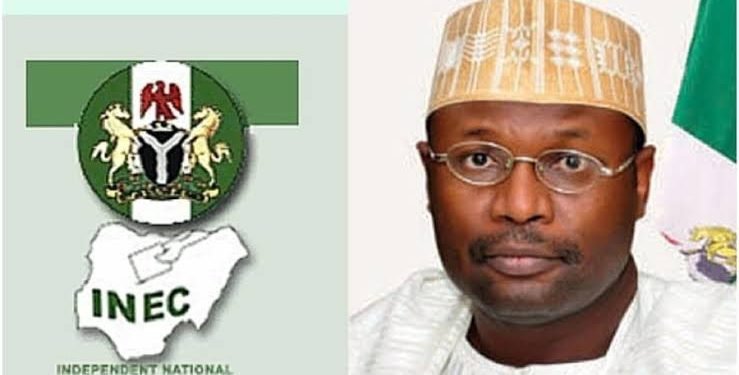Permanent and ad hoc staff of the Independent National Electoral Commission, as well as security agents to be deployed for election duties, may be forced to take an oath of neutrality henceforth.
This is being proposed in the Electoral Act (Amendment) Bill 2020 that passed the second reading at the House of Representatives on Tuesday.
Chairman of the Committee on Electoral and Political Party Matters, Aishatu Dukku, who sponsored the bill, noted that it was put together by the Senate, the House, INEC and the Minister of Justice and Attorney General of Federation, Abubakar Malami (SAN).
Dukku also said the bill comprised new and old proposals from the 2019 version passed by the 8th Assembly but which the President, Major General Muhammadu Buhari (retd), refused to assent to.
The title of the legislation reads, ‘A Bill for an Act to Repeal the Electoral Act No 6, 2010 (As Amended 2015) and Enact the Independent National Electoral Commission Act, 2020, to Regulate the Conduct of Federal, State and Area Council Elections, and for Related Matters.’
In the synopsis of the bill, a copy of which our correspondent obtained, Section 3(2)(a) which provides a definite timeline for the release of fund to INEC for the discharge of its statutory duties will be amended with an insertion which states that “the funds for general elections shall be released to the commission not later than 180 days to the date appointed for the elections” after the word ‘commission’ in the section.
Section 28(1) will also provide that all INEC staff members, electoral officers, presiding officers, returning officers, and security officials “taking part in the conduct of an election shall affirm or swear to an oath of loyalty and neutrality, indicating that they will not accept bribe or gratification from any person, and shall perform their functions and duties impartially and in the interest of the Federal Republic of Nigeria without fear or favour.”
The bill also seeks to amend Section 30 under Notice of Election, by inserting a new Subsection 4 that states that “there shall not be substitution of candidates in a by-election except where a candidate of a political party in a by-election dies,” while the party must submit to INEC, the name of its substitute candidate within 48 hours.
A similar amendment is to be made to Section 36(1) that says if after the time for the delivery of nomination paper and before the commencement of the poll, a nominated candidate dies, the Chief National Electoral Commissioner shall, being satisfied with the fact of the death, countermand the poll in which the deceased candidate was to participate. INEC will then set a convenient date for the election within 14 days.
In Section 91 under Limitation on Election Expenses, the House is proposing an amendment that says the maximum election expenses to be incurred by a candidate at a presidential election shall not exceed N5bn.
A candidate in a governorship election shall not exceed N1bn; candidate in respect of Senate and House of Representatives seat, N100m and N70m, respectively; state House of Assembly election, N30m; chairmanship election in a local government area or area council, N30m; councillorship in an area council, N5m.
Meanwhile, Speaker of the House, Femi Gbajabiamila, had urged members of the House to ensure that their constituents participate in the ongoing amendments to the 1999 Constitution and the Electoral Act by the National Assembly.
Punch






Leave a Reply